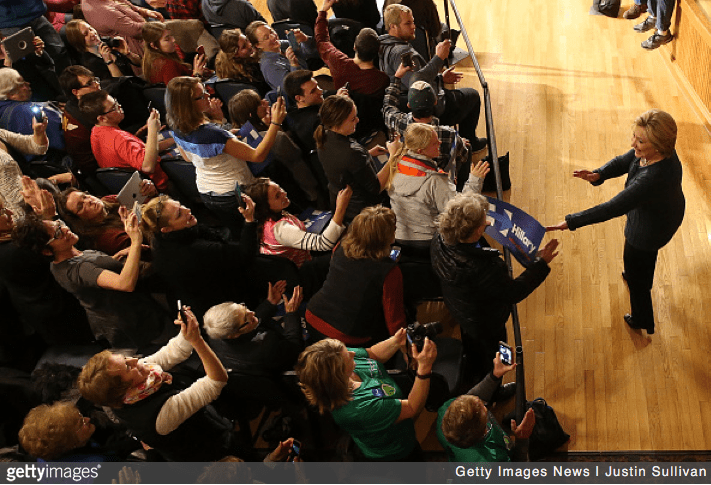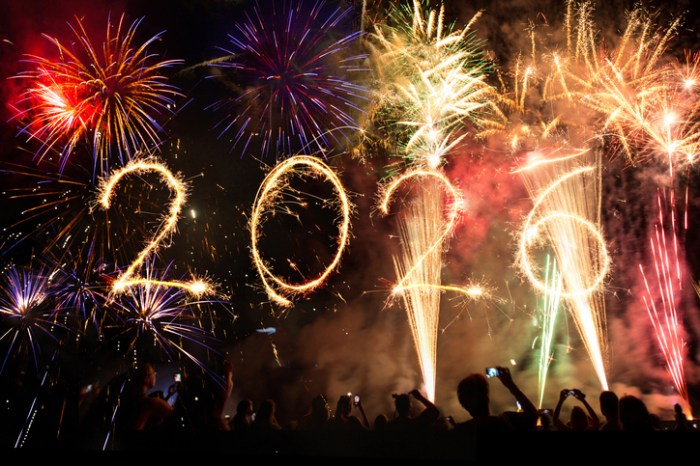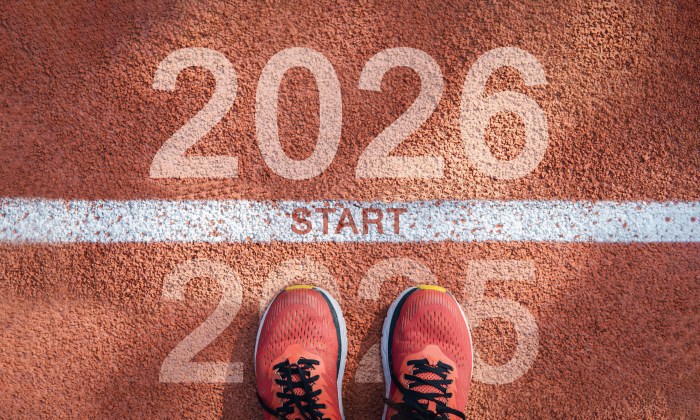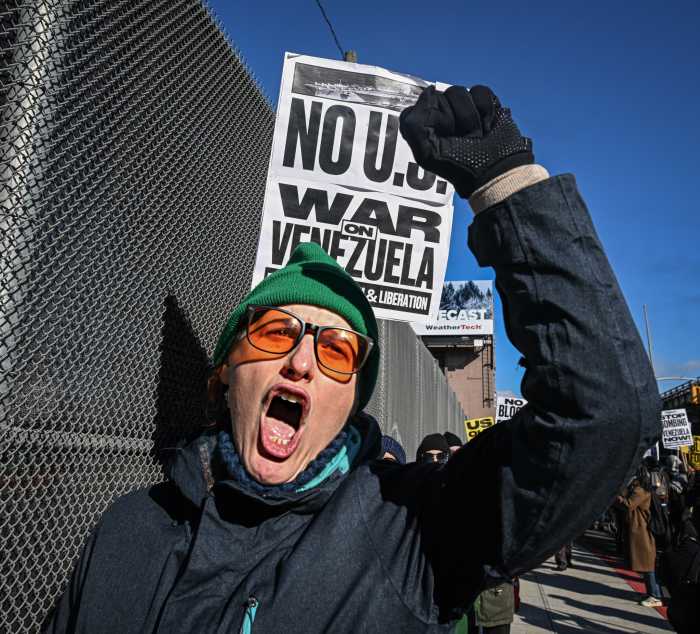Damn that Bernie Sanders! On the eve of the Iowa caucuses he rolls out a campaign ad using Simon & Garfunkel’s “America” song for the soundtrack and practically moves my bleeding heart to tears. How could he do that? Making me fall for that uplifting sentimental claptrap just as I hardwired my political cynicism into a hybrid I call: “Pragmatic idealism.”
I love his ideas, I love the enthusiasm of his supporters—young and old—who know how good it feels to be in a crowd of like-minded people rooting for the same cause. And he uses a song about as old as me to rub it in!
What’s Hillary got? Demi Lovato? Katy Perry? These two celebrity songbirds do nothing for me personally. Back in 1992 she and Bill had Fleetwood Mac’s “Don’t Stop Thinking About Tomorrow,” but that’s so yesterday! Can’t Hillary’s team come up with something to really seize the moment and remind us that she’s not only the practical choice, she’s the right choice? She has to be our next President and Bernie has to remain in the Senate with, hopefully, a Democratic majority so he and Sen. Elizabeth Warren can actually get something done for a change. It won’t work with Bernie at the top of the ticket. I just don’t see it.
So, I’m trying to come up with some uplifting Hillary campaign songs, and I admit they may be a little morbid considering that I’m thinking about two great music artists who just died, David Bowie and Paul Kantner.
I admit I’m conflicted. I want to suggest David Bowie’s “Heroes” but his line “just for one day” might mean that I think her supporters will caucus and split.
She’d need longevity if she’s going to last through the race, especially if she loses both Iowa and New Hampshire. Only two Democrats have not won those two contests and gone on to win the nomination—one was Bill Clinton, who skipped it, and the other was George McGovern, who, well, only carried Massachusetts in 1972.
I remember it well. That was the first presidential election I could vote in and I was psyched. Father Robert Drinan, the anti-Vietnam War, pro-choice Jesuit priest, was running for his second term in Congress, and I was hanging out at his victory party outside Boston to fulfill a journalism class assignment to pick a candidate and watch what happens on election night. Then the returns came in. Drinan won decisively. But it was a bloodbath for McGovern. The whole nation, except the great Commonwealth of Massachusetts, had voted for that crook, President Richard Nixon. Did I feel alienated? You bet. But I was 19 and naïve—much more naïve than today’s Bernie supporters, I trust.
So in keeping with today’s theme, maybe Hillary’s campaign might adopt Bowie’s “I’m Afraid of Americans.” On second thought, that song proved too much even for Bowie. As for his “Suffragette City,” I think it might be a little too sexist (and sexy for a grandma) although it does evoke Hillary’s bid to be the first woman elected president.
Personally, I’d cast a vote for Paul Kantner’s “Crown of Creation,” which was also the title of Jefferson Airplane’s third album. He reportedly got inspired to write it after a Democratic operative contacted him in San Francisco in 1968 but it must have proved too radical for Hubert Humphrey’s people. It was probably just a pipe dream anyway. I mean, listen to these lyrics: “In loyalty to their kind, they cannot tolerate our minds. In loyalty to our kind, we cannot tolerate their obstruction!” Maybe someone might suggest Kantner’s “Volunteers” since it has that “look what’s happening out on the streets/got a revolution” line, but that wouldn’t work for Hillary. Maybe it’s a song for Bernie, sorry. Perhaps “Somebody to Love”? I just like to hear Grace Slick sing. Oh well, it’s just a thought.
Two years before the Clintons first took the White House, Bernie Sanders first came to Congress in December in 1990 after being the mayor of Burlington, not a huge metropolis. Now that he’s running for president, the question is whether his avowed socialism is a help or a hindrance. His hero, Eugene Debs, the Socialist Party candidate, won almost a million votes in the 1920 election. I’m not sure how many votes Debs would get in a national election this year.
Sanders said during a speech last fall at Georgetown University that “almost everything” President Franklin D. Roosevelt proposed was “called socialist.” Sanders is definitely right that FDR’s New Deal programs, which saved the country from desperation and ruin, “have become the fabric of our nation and the foundation of the middle class.” And the bane of the conservative Republicans running for president today.
The Koch brothers, whose influence over American democracy is the subject of Jane Mayer’s new book, “Dark Money,” have reportedly pledged to raise and spend $889 million on the 2016 elections. That’s just two oligarchs. Meanwhile the Republican Party has consolidated its hold on 32 state governments, which controls gerrymandering and voter registration. Is it a hostile takeover? Depends on your politics. I think Hillary, battle-tested as she is, could handle them but she’ll need a hell of a lot of help and right now she doesn’t have a hold on millennial women under the age of 35, if you can believe the polls.
I’m not sure about Bernie’s longevity as a viable candidate when the GOP’s push comes to shove—and they start piling the crap onto his candidacy with all the lies their money can buy. Do Bernie’s supporters have enough moxie to go the distance? I know Hillary does. I’m not sure about him. He’ll need a nationwide movement to make his profound changes stick.
I’ve been around long enough to see movements come and go in America, some left their mark for the greater good, but their supporters had to take the long view. It took American women more than a century to get the right to vote. Rev. Jesse Jackson’s Rainbow Coalition didn’t get him elected but maybe it helped lay the groundwork for Barack Obama. The anti-war movement didn’t stop the Vietnam War but it did kill the draft. President Richard Nixon finally found a way out of that war but he left a disaster behind, and our Vietnam veterans today are still carrying their scars. Now, they join our Iraqi vets, who drafted themselves to answer the call after 9/11. But President George W. Bush and Vice President Dick Cheney mislead them into a Mideast quagmire that had nothing to do with Osama Bin Laden. So many lives lost, so much money wasted, and the war goes on in a different way today. And the only winner is fear.
Once upon a time the great liberal Democrat, Adlai Stevenson, was running for president against President Dwight Eisenhower when a supporter told him he’d given such an inspiring speech that he would surely “get the votes of all the thinking people.” “Thank you , madam,” he replied, “but I need a majority.” With only a minority behind him, Stevenson failed miserably in 1956. Fortunately, the Republican Party at the time was much more moderate than it is today. That’s why what happens in 2016 is so crucial. And what happens this week in Iowa and next week in New Hampshire is so critical.
Fast-forward five decades and, for the left and liberal Democrats, “this tension between committed activists and political realty has worsened significantly,” writes retired Rep. Barney Frank—the first openly gay Congressman—in his recent memoir. The activists believe that the great mass of voters are ready to make a sharp left turn, they just need the right nudge, so to speak. But that’s magical thinking. And I fear it’s what’s driving Bernie’s backers.
Barney Frank has seen this liberal/left divide before.
“I would not only try to dissuade my ideological allies from nominating unelectable candidates but would also argue against undermining our candidates by insisting that they ignore inconvenient political realities, or by denouncing them as betrayers when they took those realities into account,” Frank recalls. “This aspect of my work was much less fun.”
As he says, “liberals are more inclined to hold public demonstrations, in which like-minded people gather to reassure each other of their beliefs… Applauding speakers who denounce the unfairness of a particular situation and rail against the political system is more emotionally satisfying—but very much less effective.”
Here’s Frank’s rule: “If you care deeply about an issue, and are engaged in group activity on its behalf that is fun and inspiring and heightens your sense of solidarity with others, you are almost certainly not doing your cause any good.”
For those who challenge my pragmatic idealism, I have two words: Ralph Nader. Look how bad it got when Al Gore lost to W, because Nader siphoned off too many votes in Florida. I don’t want Bernie to do that to Hillary.
“The white males who used to vote for Democrats have not become philosophical opponents of an active public sector,” says Frank, the quintessential Massachusetts liberal. “They dislike much of what they perceive that the government is doing, but they are even angrier at what it is refusing to do—adopt policies that will reverse the harm they have suffered from the economic shifts of the past decades.
“Reversing these voters’ anti-government sentiments is the challenge for liberals,” warns Frank. “It requires measures that will reduce inequality.” He says we do it without raising taxes on the middle class by reducing the military budget and ending criminal penalties for drug users. I know that both Bernie Sanders and Hillary Clinton want to fight inequality, one more directly than the other, one perhaps more effectively than the other.
But if the Democrats lose the election in 2016, neither will get the chance and it will only get worse. And then we’ll all be left singing a very sad song indeed.


































